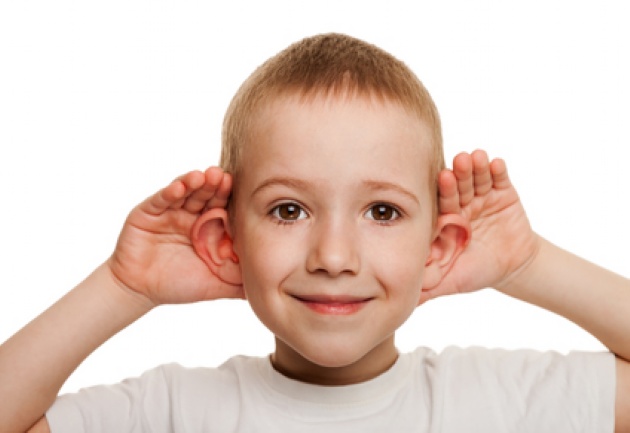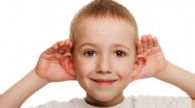When
a child is unable to produce speech sounds correctly or fluently, or has
problems with his or her voice, then he or she has a speech disorder. Difficulties pronouncing sounds, or articulation
disorders, and stuttering are examples of speech disorders. Having trouble
understanding others, or sharing thoughts, ideas, and feelings completely, then
he or she has a language disorder.
Parents know their child best and
often have a “gut feeling” about the development of their child’s speech and
language skills. Parents may also compare their child’s speech and language
development to that of other children the same age and quickly determine that
something is not on track. Parents can suspect that their child may have a
speech and/or language development issue as early as 12months. Long before
babies utter their first words they are actively trying to communicate with us
using their eyes, by smiling, by crying, by cooing, by imitating sounds
etc.
By 12-18 months, infants are
expected to meet certain important communication milestones. For example, they
should be able to locate a sound source, make eye contact, respond to their
name, use gestures to get what they want, follow simple directions, produce a
few words consistently etc. If a child is not meeting certain key communication
milestones, some parents will seek services quite early (i.e. 18 months – 3
years old). In other cases, parents realize there is an issue when their child
is older and the problem is more noticeable (3 years plus).
It is very important to act quickly. If your parental
instinct tells you that there is something wrong, don’t ignore; it is your best
guide. Chances are that indeed your child has some sort of speech disorder. The early
years of your child’s life are the most important for building strong language
skills. Research has shown that early identification of speech and
language delays gives children a better chance of developing pre-reading and
academic skills. In addition, early intervention can prevent speech and
language problems from getting worse; it can decrease frustration and may help
reduce behavior and communication problems.
The following signs may indicate a
problem with speech and language development however, this list is not
exhaustive.
-
Frequent
ear infections
-
Poor
listening skills
-
Difficulty
understanding simple commands
-
Avoids
eye contact
-
Limited
vocabulary
-
Speaks
in broken phrases or leaves out words in sentences
-
Speaks
in a way that is difficult to understand
-
Mispronounces
many sounds
-
Has
trouble finding the right words
-
Stutters
At our
center, we encourage parents and their child to participate in the Parent and
Child Early Communication Enhancement Program. However, our clients are more
than welcome to seek our private one-on-one speech and language service.
Nonetheless, group therapy offers several advantages;
-
Supportive
network of parents
-
Practice
in a setting that models a real world environment
-
Ability
for your child to teach and learn from others
-
Modeling
and support from a registered Speech-Language Pathologist (S-LP)
-
Cost
efficiency
The Early Communication Enhancement (E.C.E.) Program teaches parents to
implement specific language facilitation techniques that encourage,
stimulate and support language at a very young age (for example,
following your child’s interests, labeling, waiting, expanding
etc.). As a child gets older, other
strategies become more useful and are not the focus of this particular program.
At Agoo, our children are our
priority; therefore, after the 6-week program is over the Speech-Language
Therapist provides parents with a progress report and may suggest more group
therapy, or individual therapy only if necessary.

 In The Latest Issue:Latest Issue:
In The Latest Issue:Latest Issue:
- A Bittersweet Farewell
- The new Laval Aquatic Co...
- The End of an Era:
Articles
Calendar
Virtual- ANNUAL TEACHER APPRECIATION CONTEST
- APPUI LAVAL
- ARTS & CULTURE
- CAMPS
- CAR GUIDE
- CCIL
- CENTENNIAL ACADEMY
- CHARITY FUNDRAISING
- CITYTV
- COSMODÔME
- COMMUNITY CONNECTIONS
- COVER STORY
- DINA DIMITRATOS
- ÉCOLE SUPÉRIEURE DE BALLET DU QUÉBEC
- EDITORIALS
- ÉDUCALOI
- EDUCATION
- EMPLOYMENT & ENTREPRENEURSHIP
- FÊTE DE LA FAMILLE
- FÊTE DU QUARTIER SAINT-BRUNO
- FAMILIES
- FESTIVAL LAVAL LAUGHS
- FÊTE DE QUARTIER VAL-DES-BRISES
- FINANCES
- GLI CUMBARE
- GROUPE RENO-EXPERT
- HEALTH & WELL-BEING
- 30 MINUTE HIT
- ANXIETY
- CHILDREN`S HEALTH & WELLNESS
- CLOSE AID
- DENTAL WELLNESS
- EXTREME EVOLUTION SPORTS CENTRE
- FONDATION CITÉ DE LA SANTÉ
- GENERAL
- HEARING HEALTH
- MESSAGES FROM THE HEALTH AGENCY OF CANADA
- MENTAL HEALTH
- SEXUALITY
- SOCIAL INTEGRATION
- SPECIAL NEEDS
- TEENS
- THE NUTRITION CORNER
- THE NUTRITION CORNER - RECIPES
- VACATION DESTINATION
- WOMEN'S FITNESS
- WOMEN'S HEALTH
- HILTON MONTREAL/LAVAL
- HOME & GARDEN
- INTERNATIONAL WOMEN'S DAY
- JAGUAR LAVAL
- LAVAL À VÉLO
- LAVAL FAMILIES TV SHOW
- LAVAL FAMILIES MAGAZINE CARES
- LAVAL URBAN IN NATURE
- LE PARCOURS DES HÉROS
- LES PETITS GOURMETS DANS MA COUR
- LEON'S FURNITURE
- LEONARDO DA VINCI CENTRE
- LFM PREMIERES
- LIFE BALANCE
- M.P. PROFILE
- MISS EDGAR'S AND MISS CRAMP'S SCHOOL
- MISSING CHILDREN'S NETWORK
- NETFOLIE
- NORTH STAR ACADEMY LAVAL
- OUTFRONT MEDIA
- PASSION SOCCER
- PARC DE LA RIVIÈRE-DES-MILLE-ÎLES
- PÂTISSERIE ST-MARTIN
- PIZZERIA LÌOLÀ
- PLACE BELL
- PORTRAITS OF YOUR MNA'S
- ROCKET DE LAVAL
- SACRED HEART SCHOOL
- SCOTIA BANK
- SHERATON LAVAL HOTEL
- SOCIÉTÉ ALZHEIMER LAVAL
- STATION 55
- STL
- SUBARU DE LAVAL
- TECHNOLOGY
- TEDXLAVAL
- TODAY`S LAURENTIANS AND LANAUDIÈRE
- TODAY`S LAVAL
- WARNER MUSIC
- THIS ISSUE
- MOST RECENT
Magazine
Do you feel your child is not listening to you? Maybe it’s more…
Articles ~e 105,7 Rythme FM 4 chemins Annual Teacher Appreciation Contest Appui Laval Arts & Culture Ballet Eddy Toussaint Camps THIS ISSUE MORE...
CONTESTS Enter our contests
CONTESTS Enter our contests
CALENDAR
Events & Activities
COMMUNITY Posts Events
PUBLICATIONS Our Magazine Family Resource Directory
LFM BUSINESS NETWORK Learn more
COUPONS Click to save!
COMMUNITY Posts Events
PUBLICATIONS Our Magazine Family Resource Directory
LFM BUSINESS NETWORK Learn more
COUPONS Click to save!
SUBSCRIPTIONS
Subscribe to the magazine
Un-Subscribe
E-NEWSLETTER Subscribe to our E-newsletter Un-Subscribe
WRITE FOR US Guidelines & Submissions
POLLS Vote today!
E-NEWSLETTER Subscribe to our E-newsletter Un-Subscribe
WRITE FOR US Guidelines & Submissions
POLLS Vote today!
ADVERTISERS
How to & Media guide
Pay your LFM invoice
SUGGESTIONS Reader's Survey Suggest a Listing
LFM About Us Our Mission Giving Back Contact Us
SUGGESTIONS Reader's Survey Suggest a Listing
LFM About Us Our Mission Giving Back Contact Us
 PICK-UP LOCATIONS
Get a copy of LFM!
PICK-UP LOCATIONS
Get a copy of LFM!
TERMS & CONDITIONS Privacy | Terms
ISSN (ONLINE) 2291-1677
ISSN (PRINT) 2291-1677
Website by ZENxDESIGN




 BY:
BY:  Dr. Tina Sampalis
Dr. Tina Sampalis 
Tweet
Share